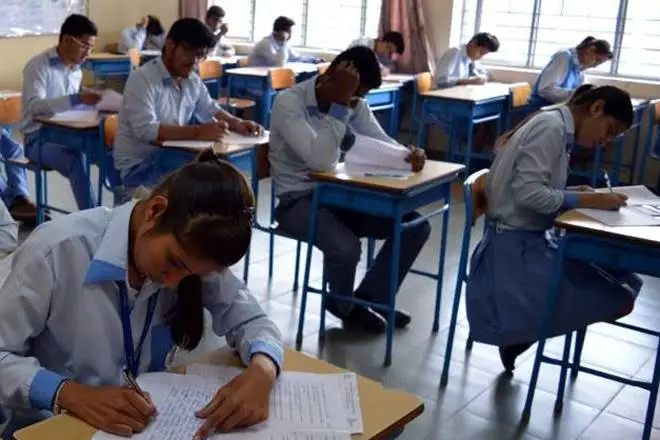The Indian Government recently adopted a New Education Policy (NEP) in response to the significant flaws in the previous education policy. The New Education Policy 2020 aims to make education more experiential, flexible, integrated, learner-oriented, and enjoyable. In addition, universal access to education will be provided to students at all levels, regardless of their social or economic backgrounds.
NEP 2020 aspires to make India a “Global Knowledge Superpower” by reforming school curriculum and pedagogy over the next decade. For this, it introduces a new 5+3+3+4 education structure with four stages. These new stages complement the most recent educational trends worldwide.
India is about to bring significant changes to its education system through the National Education Policy 2020. The latest changes are being implemented to retire 34 years old ways of learning. The revised policy primarily emphasises online learning, longer school days, and a shift from rote learning to conceptual learning.
New Education Policy 2020 Key Highlights
The National Education Policy 2020 aims to offer all children in India a high-quality, equitable education. The following are some of the policy’s key highlights:
- The policy prioritises providing a high-quality, low-cost education to all children aged 3 to 18.
- It prioritises holistic and multi-disciplinary education over rote learning.
- Rather than how well students remember things from books, students will be tested on their ability to apply concepts to real-world problems.
- It accentuates that the three-language formula will be used in schools, focusing on regional and foreign languages.
- The school curriculum should include more fundamental concepts and vocational training.
- The policy emphasises the use of education technology to improve accessibility and effectiveness.
- This policy establishes a new 5+3+3+4 education structure, replacing the existing 10+2 system.
- It intends to raise the Gross Enrollment Ratio in higher education to 50% by 2035.
National Education Policy 2020 – 5 Significant ChangesThe new national education policy brings numerous significant changes to the functioning of schools. Let’s take a look at the top five notable changes:
- The New Pedagogical & Curricular Structure
School education’s curricular and pedagogical structure will be reconfigured to be responsive and appropriate to the educational needs and interests of learners at various stages of learning, corresponding to ages 3-8, 8-11, 11-14, and 14-18 years.
The New Education Policy divides the education structure into four various stages:
- Foundational Stage (3 years of Anganwadi/pre-school + 2 years of primary school covering ages 3-8)
- Preparatory Stage (covering ages 8-11)
- Middle Stage (covering ages 11-14)
- Secondary Stage (two phases, covering ages 14-18)
The new 5+3+3+4 education structure is a significant departure from India’s previous education system, which was a 10+2 system. As a result, students will spend longer in school, but the number of years expended in each education stage will be reduced.
- Early Childhood Care and Education (ECCE)
Early Childhood Care and Education (ECCE) is not just getting kids ready for kindergarten. While ECCE traditionally refers to education for children aged 3-6, NEP 2020 considers it a holistic approach to policies and programs for children up to six years of age, their parents, and teachers. The revised policy defines ECCE as the following types of learning:
- Activity-based
- Multi-faceted
- Play-based
- Inquiry-based
- Multi-level
- Flexible
The motive is to provide all young children universal access to quality early childhood care, development, and pre-primary education, preparing them to thrive lifelong.
- Foundational Literacy and Numeracy (FLN)
As part of the implementation of the NEP 2020, the Ministry of Education, Government of India, has introduced the NIPUN Bharat Mission for Foundational Literacy and Numeracy — the ability to read and comprehend texts. FLN’s goal is to ensure that children learn in a fun and enjoyable way through the play, stories, rhymes, activities, local art, craft, and music and to build solid foundations for lifelong learning. The mission outlines learning outcomes constructed in a spiral and innovative manner from pre-school to grade three, to promote holistic growth and development of children.
- A Strong Focus on Empowering Teachers
‘Teachers truly shape the future of our children – and, thus, the future of our nation,’ prompts the NEP 2020, stating that teachers play the most crucial role in nation-building by delivering high-quality resources in their classrooms. Therefore, besides providing students with high-quality education, the National Education Policy 2020 aims to empower teachers.
It necessitates a massive revamp of the teaching profession in India to establish a solid merit-based salary, promotion, and tenure structure that recognizes and rewards outstanding teachers. The NEP education system strengthens and brings transparency to the teacher recruitment process. Every year, teachers and principals will participate in Continuous Professional Development modules to improve their leadership, teaching, and school management skills and implement competency-based learning.
- Emphasis on Online and Digital Education
The New Education Policy 2020 aims to consistently provide universal access to high-quality education across the country, from pre-primary to Grade 12. This will be accomplished by utilising cutting-edge learning tools and technologies to deliver education digitally, such as online assessments and exams, online teaching tools, virtual labs and workstations, online learning platforms, digital repositories, smart classrooms, learning management systems, etc.
The New Education Policy heavily promotes online and digital learning through an advanced and crisp curriculum designed to bring out each student’s unique abilities. As a result, the NEP education system is:
- Holistic
- Flexible
- Multi-disciplinary
The purpose is to make education accessible for every child in India.
Final Words
The New Education Policy 2020 is a game-changing policy that seeks to transform India into a thriving knowledge society and global knowledge superpower. This will be achieved by making school education more holistic, flexible, multi-disciplinary, suited to 21st-century needs, and aimed at bringing out each student’s unique capabilities.




